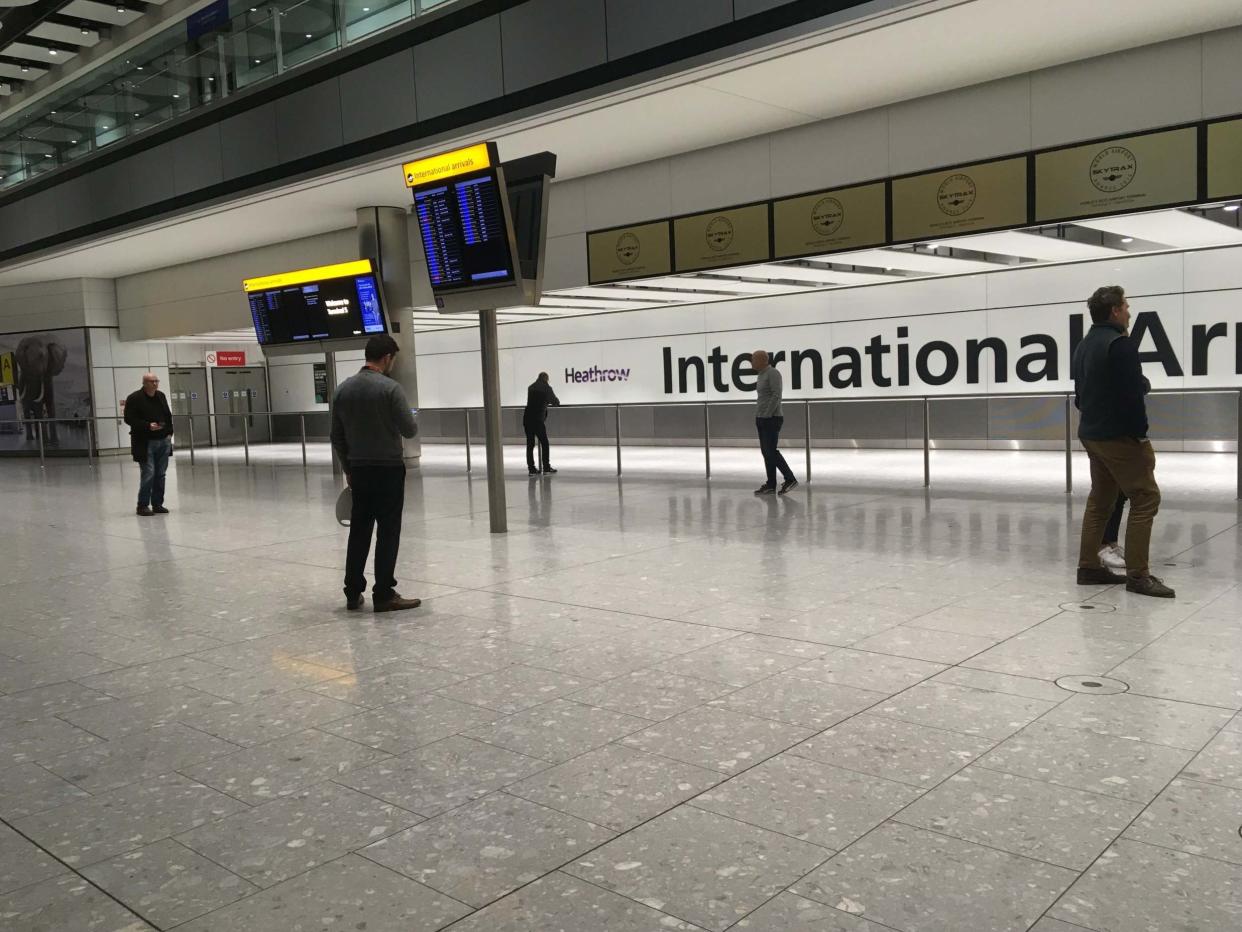Coronavirus: Foreign Office advises against all travel ‘indefinitely’

The Foreign Office has changed its restrictions to advise against all non-essential travel “indefinitely”.
The previous travel ban only ran until 16 April, but the advice has now been extended with no end date in sight.
In a post shared on social media on Saturday, the FCO wrote: “Travel update: The Foreign Office indefinitely advises against all non-essential global travel”.
A video attached to the tweet read: “We now advise against all non-essential global travel – indefinitely. The situation is changing rapidly. Travellers could face severe disruption and be unable to return to the UK.“
The advice against all non-essential global travel was first put in place on 17 March for an initial period of 30 days.
Some tour operators and airlines are still selling holidays and flights departing not long after the original end date of the restrictions.
For example, Europe’s largest package holiday provider, Tui, is offering a range holidays leaving on 2 May, while easyJet is selling flights departing 1 May. When The Independent did a search, it seemed the airline was also selling flights in the two weeks prior, but that the majority of these are listed as being “sold out”.
A spokesperson for UK travel trade association Abta said: “Although the advice has now changed for an indefinite period, this is now in essence the same as any ‘all but essential’ travel advice and it could be removed at any time.
“As such there is no change to the advice for members and customers in this regard. Travel companies can still look at imminent departures and decide how far in advance they will begin to offer alternative arrangements/ refunds or equivalent options.”
EasyJet told The Times it is constantly evaluating its schedule depending on demand and government guidelines, saying it has an “ongoing rolling cancellation programme in place and is working through these having taken April off sale”.
Tui said of its holidays: “Should the advice be extended, we will proactively contact affected customers to discuss their options and take holidays off sale.”
Multiple concerned consumers have been in touch with The Independent asking whether they should cancel upcoming holidays and risk losing their deposits, or pay out more money for a trip they think is sure to be cancelled.
Travel update ✈️: The Foreign Office indefinitely advises against all non-essential global travel
➡️ Read our guidance: https://t.co/G30uvrt6iW
➡️ Follow @FCOtravel for country updates
➡️ More information here: https://t.co/gEkkRIWaYw pic.twitter.com/ktadUI0Q9t— Foreign Office 🇬🇧 (@foreignoffice)
The Independent’s travel correspondent Simon Calder advises paying up the full balance where possible.
He says: “It may sound counter-intuitive to pay out more money to guarantee either a holiday or your money back, but that is the way the system works.
“If the trip is cancelled, you can expect a full refund of the whole cost of the trip – even if you have to wait some time.
“Deciding not to pay the balance would mean that you lose the deposit – and, even if the trip is subsequently cancelled, you cannot get the money back.”
Read more
Foreign Office indefinite travel ban: what it mean for holidaymakers
What your rights are if your travels are cancelled due to coronavirus
Advice for UK travellers after Foreign Office warns against all travel
The best virtual travel experiences to enjoy
Full list of repatriation flights available to stranded Britons

